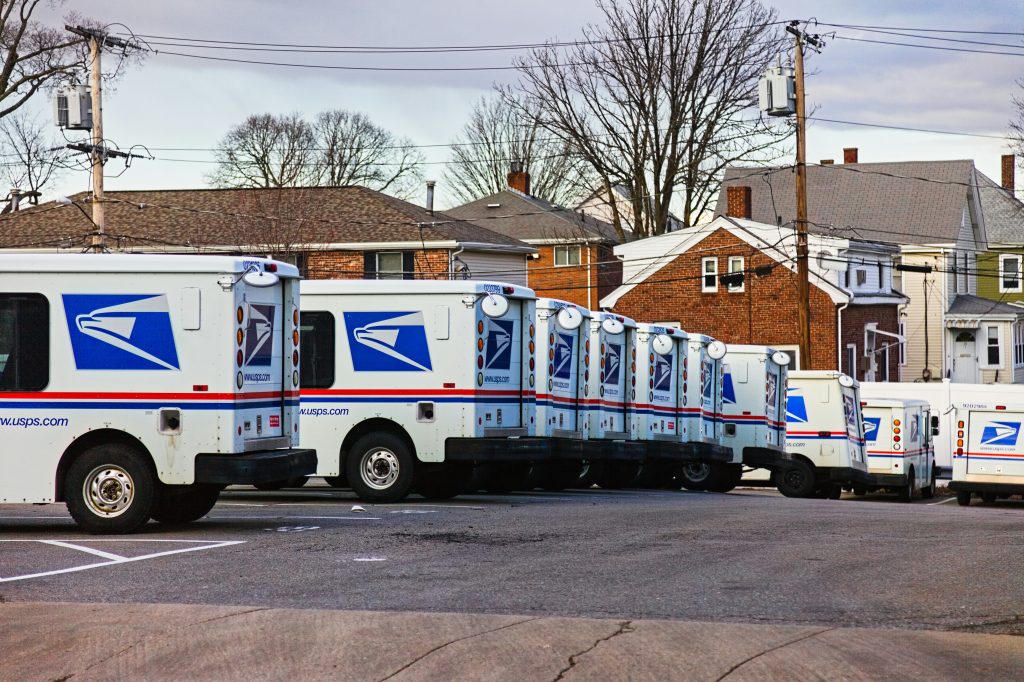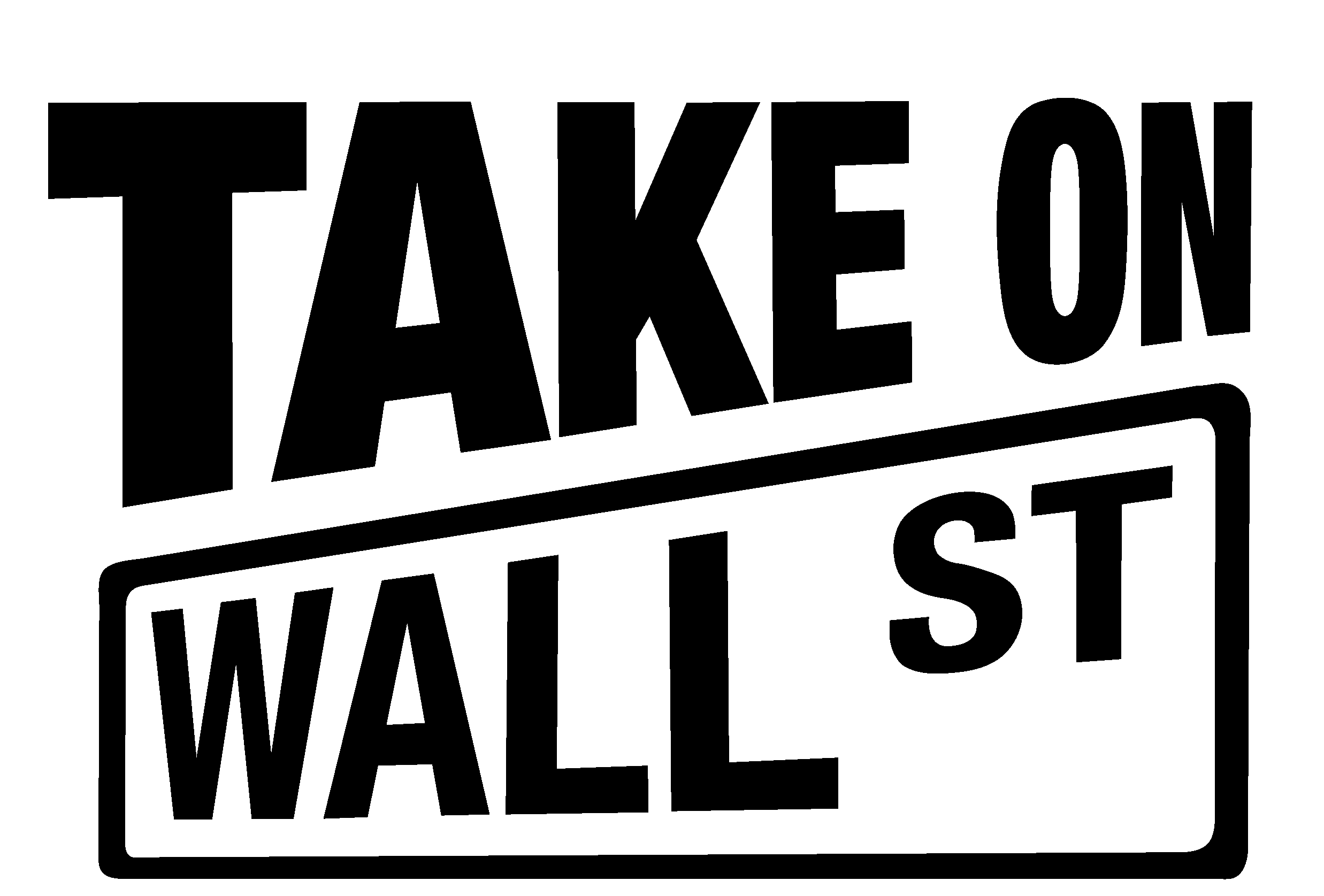
After recent pivotal and concerning developments–a new incoming Postmaster General & pending postal board appointments–the US Postal Service is under its most serious privatization threats yet, and we must fight back.
Donald Trump pressured the postal board to hire a FedEx director – David Steiner – as postmaster general.
On May 9, the postal board of governors announced the selection of then sitting FedEx board member David Paul Steiner to be the next postmaster general. Reports surfaced that Trump pressured the board to hire Steiner, despite having no authority to do so. The 1970 Postal Reorganization Act removed USPS from the cabinet and established it as the independent agency it is today, largely to protect the Postal Service from political interference. Steiner must still complete a background and ethics review process; Postal Board Chair Amber McReynolds stated he will join USPS as Postmaster General in July.
David Steiner has serious conflicts of interest and stands to profit from privatization.
Trump’s move to pressure the postal board of governors to install a director from a direct competitor that would directly profit from USPS’ downfall should be extremely troubling to anyone concerned about postal privatization and corporate greed. The day the postal board announced they had selected Steiner, FedEx stock price soared seven points, a significant financial boon for Steiner, who holds nearly 35,000 shares of FedEx common stock, currently worth $7.4 million, according to the most recent FedEx proxy statement. He also owns FedEx stock options worth millions more.
Our coalition came together in 2020 when Trump appointed campaign donor Louis DeJoy as Postmaster General. Postal stakeholders were deeply concerned by DeJoy’s conflicts of interest due to his connections to transportation logistics companies that contracted with the Postal Service, and worried about just how much privatization was hiding in his new 10-year plan. The state of alarm is much more serious today, as Steiner has deep ties to a direct competitor of the Postal Service. FedEx stands to profit greatly if USPS fails and is then privatized—and Wall Street has already laid out just how profitable it could be (for FedEx and others) to sell off the post office.
Because the postmaster general is hired by the postal board and does not require Senate confirmation, there is no opportunity to publicly question Steiner on key issues, like the extent of his ties to Wall Street, private equity or venture capital firms, and privatization think tanks; whether and how he will divest from his FedEx shareholdings; and, most importantly: his position on the importance of protecting and expanding a thriving public Postal Service.
Trump will fill the postal board with loyalists to benefit rich friends on Wall Street.
There are currently five open seats on a nine member postal board of governors that the president may fill with nominees at any time. Trump has already nominated Anthony Lomangino, a MAGA mega-donor and Mar-a-Lago member. Notably, the southern Florida “garbage magnate” sold his waste company to Waste Management in 2015, when David Steiner was CEO of the company. Trump’s second postal board nomination is long-time MAGA afficionado, and GOP operative, John LaValle of Long Island. These first two postal appointments make it clear that Trump will continue to fill the board with loyalists and donors who seek to benefit Wall Street, and we must fight back.
This isn’t Trump’s first attempt at privatizing the post office.
The previous Trump administration floated the idea of privatizing USPS, releasing a June 2018 report including a restructure proposal that mentioned privatization ten times in the two relevant pages (pg. 68-69). Members of Congress representing rural areas where private carriers don’t deliver were swift to oppose the plan. A few months later, then Treasury Secretary Mnuchin’s USPS Task Force produced a report with similar recommendations that avoided using the word “privatize,” signaling a retreat from publicly broadcasting the unpopular plan to privatize the post office while continuing to push it.
By the time Trump installed DeJoy in 2020,sustained pressure from the coalition in partnership with postal workers, members of Congress, and others forced DeJoy to take a different tack. He severed a billion dollar air contract with FedEx, in 2024 in favor of UPS, because it was a better deal for the Postal Service, and even brought more contracts in-house than any other postmaster general in recent history.
We must fight privatization in all forms, and protect & expand a public Postal Service.
Privatization would deeply affect rural communities, including hundreds of Indigenous communities, seniors, veterans, small businesses, and communities nationwide who rely on USPS to deliver medications, social security and Medicare checks and correspondence. Private delivery companies have no obligation to serve rural areas or low-income customers, but USPS’s Universal Service Obligation guarantees the same service, at the same price, no matter your ZIP code. A new report estimates that the impact of postal privatization could cause as many as 62 percent of all ZIP codes to see a significant surge in mail and package pricing—covering both rural areas and some communities less than 10 miles from major metropolitan areas like Saint Louis, Austin, and Nashville.
A strong majority of voters oppose Trump’s plans for postal privatization—60% against to only 26% in favor. The opposition to postal privatization is broad, crossing partisan and demographic lines, and is notably strong in rural communities, according to a recent poll conducted on behalf of the American Postal Workers Union. The Postal Service is a very popular and treasured public institution for Republicans, Democrats, and Independents alike—and a lifeline for rural and remote communities where private carriers like FedEx and UPS either surcharge or just won’t deliver. USPS’ universal mandate also forces the private carriers to keep their prices somewhat competitive.
We fought back before to keep Trump, DeJoy, and the postal board from taking steps towards privatization, and we can do it again. There is an urgent need and opportunity to escalate our fight now. Trump’s interference has Steiner poised to take the lead and he still has over half the postal board to fill with privatization loyalists. The Postal Service needs leaders with experience and commitment to public service, who will protect and expand USPS, not slowly undermine it and then sell it off for profit to the highest bidder. The People’s Postal Agenda is a roadmap of options to expand services and bring in needed revenue, like postal banking, EV charging stations, and public WiFi. Read more about the urgency to bring back postal banking at BankingFair.org.

Leave a Reply